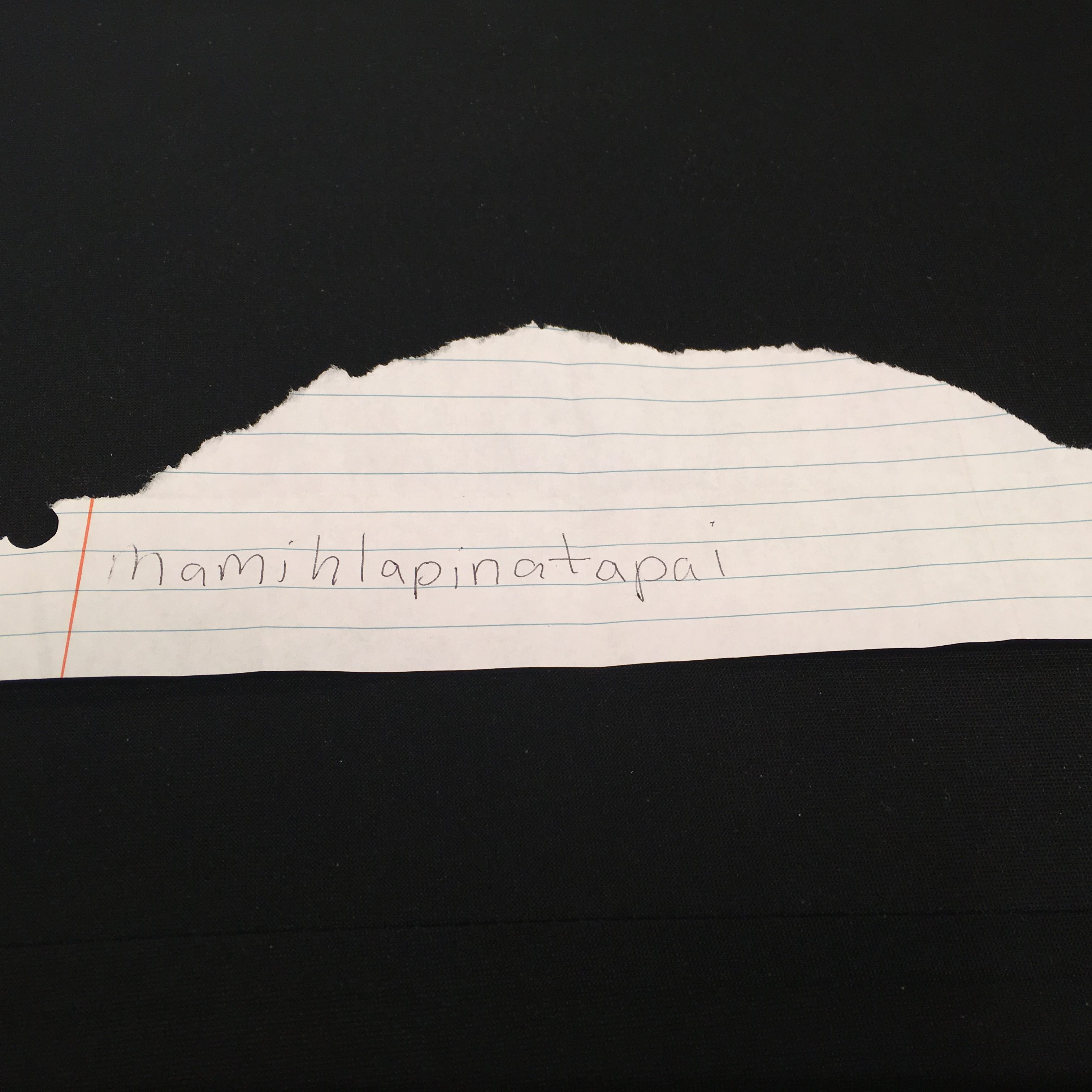Christy wrote it down for me in a cultural intelligence class one day. I took a picture because it was something I didn’t want to forget. Never mind the topical, just save me the important stuff. Like the way you would memorize a person’s features, speech and mannerisms so you could keep them for later — occupying your mind until you’ve exhausted every minute detail.
This word from the Yahgan language — a dying language still able to perfectly describe these real, live actions. It translates to a look shared by two people each wishing the other would initiate something that they both desire but which neither wants to begin. Another interpretation might be that look across the table when two people are sharing an unspoken but private moment. When each knows the other understands and is in agreement with what is being expressed. An expressive meaningful silence.
Language plays an important part in our cultural identity. But despite our differences, we ultimately feel the same things. Sociopaths not included.
If you’ve ever:
1.) heard someone say a thing so cute you wanted to squeeze her
2.) seen someone so beautiful you wanted to punch him in the face
3.) held a baby so chubby chub chubs you wanted to smother the heck out of it when they speak to you in gibberish so you try to humor them to keep the conversation going and sure enough they talk back more nonsense and this makes you lol and they laugh along right with you and it’s just too much to take in that your head ‘splodes
Then you know what it’s like to feel gigil — a Filipino word describing that feeling of being so overwhelmed by someone or something that you get the urge to destroy it.
Also in Filipino, mahal means love, means expensive, interestingly.
Mahalang in Chamorro is a sort of deep yearning in your heart. When you miss something or pine for someone so much that it causes you to be sad
Siempre is an expression of affirmation in both Chamorro and Filipino, of course. It certainly is! In Spanish, siempre translates to always. Not to be confused with Shempi, the 7th track off Ratatat’s 3rd studio album, LP3. It’s a fantastic album.
Manaakitanga is a Maori word used to describe their kind of welcoming and hospitality. It’s a process of showing respect, generosity and care for others. You can find a complete breakdown of what it means here. Chamorros have similar practices by showing their hafa adai spirit, but I’m not so sure there’s a word for it.
We can communicate the same things through different languages. Just as much, we can convey different meanings by saying the same thing in another language. We can experience so much emotional overload it causes our insides to shake. Or a yearning so deep and desperate it deflates our hearts. We can communicate without having to say anything at all, there’s a word specifically meant just for that. We could be so physically ill that we spend a good part of our night mentally dissecting the meaning of things like beautiful words from various languages. I mean, I’m pretty sure there has to be a word for that too, right? Siempre.













